
10 Aug, 2016
Islamic designs flag rising popularity, elegance of “modest fashion”
Jakarta – Islamic fashion is spearheading the rise of a new global trend known as “modest fashion”. After years of designing clothes that “reduced women to objects of sexual desire or just used to sell merchandise”, global fashion houses are awakening to this new trend. At a broader level, this pursuit of the middle-path is symbolic of the search for balance, one of the most significant societal trends today. As young Muslim women slowly shun the extremity of the eyeslits-only full body covering, the niqab, non-Muslim women are easing away from the opposite extremity of excessively revealing apparel.
That was a key conclusion of one of the main panel discussions of the 12th World Islamic Economic Forum (WIEF) under the energising title: “Can Islamic Fashion Become Haute Couture?” The panelists featured Ms Faduma Aden, Chief Executive Officer & Founder of Swedish fashion house Jemmila; Ms Barbara Nicolini, Creative Director of Infinita Group and IFDC, Milan; Mr. Didiet Maulana, a prominent Indonesian fashion designer; and panel moderator Mrs Roshan Isaacs, Country Manager, Islamic Fashion and Design Council (IFDC), South Africa.
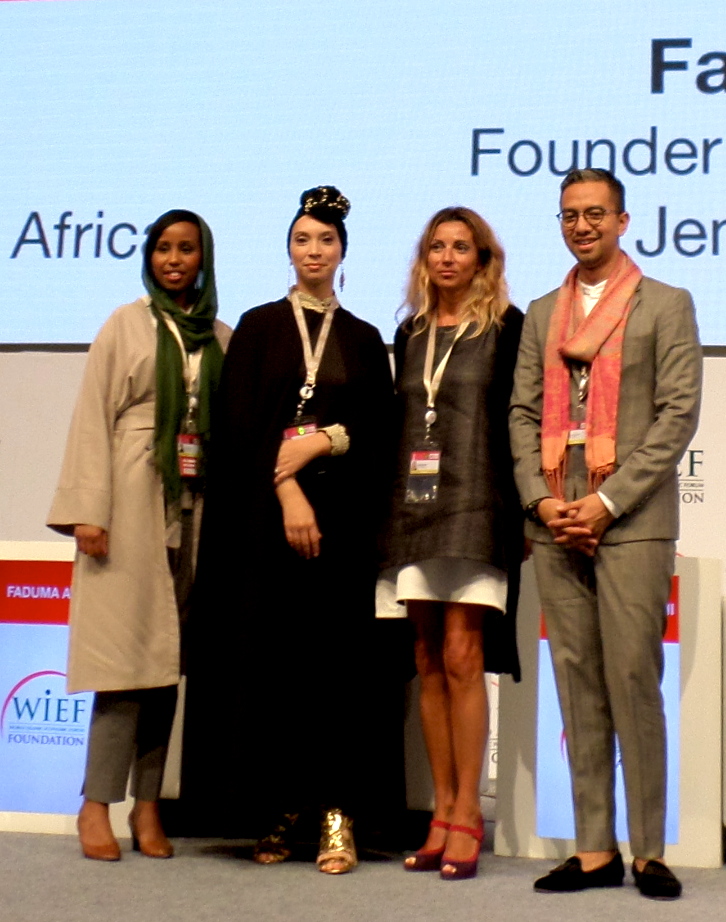 The panelists, from left, Ms Faduma Aden, Mrs Roshan Isaacs, Ms Barbara Nicolini, Mr. Didiet Maulana. |
The composition of the panel reflected the trend. Mr. Maulana represented Indonesia, arguably the biggest single country market for women seeking to be fashionable without compromising their faith. Ms Nicolini, based in Milan, highlighted the slow but steady penetration of “modest fashion” in the major centres of haute couture. Ms Aden is a Somali-origin designer working in Stockholm. The moderator, Ms Isaacs, is advancing the cause of Islamic fashion in South Africa, a non-Muslim country with a large Muslim minority.
From their own unique contexts, all panelists outlined their professional challenges and opportunities, and the way forward.
The discussion on the global “modest fashion” industry was in line with the umbrella theme of the 12th WIEF, “Decentralising Growth. Empowering Future Business.” Along with prominent exhibits of Islamic fashion across the Forum, (see pictures below), the objective was to attract the attention of Islamic financiers, fund managers and bankers looking for places to park their money. The potential is clearly being recognised. Singaporean start-up investor Eddy Lee, a speaker in another session on financing future business, said one of the start-ups he is backing is the Indonesian fashion website, www.hijup.com
The market potential is obvious. According to the WIEF’s panel introduction, “In 2013, Muslims spent US$266 billion on fashion alone, more than that of Japan and Italy combined. This figure is expected to increase to US$484 billion in 2019. For a market estimated to be worth US$96 billion, and with many mainstream brands creating modest fashion capsules, the modest/Islamic fashion movement can make it big.” Haute couture premium fashion is a particular target. If non-Muslims are added, a trillion dollar market emerges for “modest fashion”. The benefits for both investors and local grassroots entrepreneurs are obvious.
Said Ms Nicolini, “Two years ago ‘modest fashion’ is not a word that people knew. Now when I discuss this kind of culture, people know. They start to understand and think about it. I can start to see in Milan, that women are changing, women who cover themselves in a particular way. I saw that two years ago, this change began to enter haute couture. Before, the fitting was very tight, can see all, nothing to imagine. Modest fashion could be haute couture as it really elegant.”
She illustrated her point with the following slides which she said clearly showed that fashion need not “reduce women to objects of sexual desire or be used just to sell merchandise”:
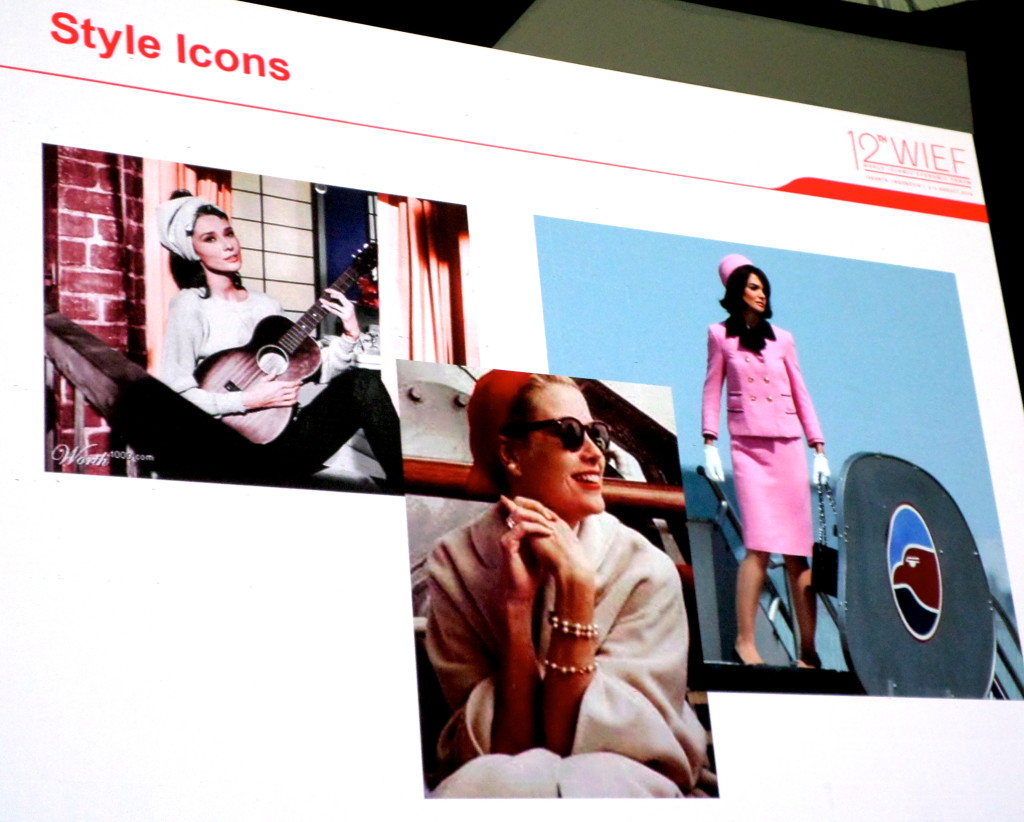 Iconic examples of modest fashion cited by designer Barbara Nicolini: Hollywood actress Audrey Hepburn, Princess Grace of Monaco and Jacqueline Onassis Kennedy. |
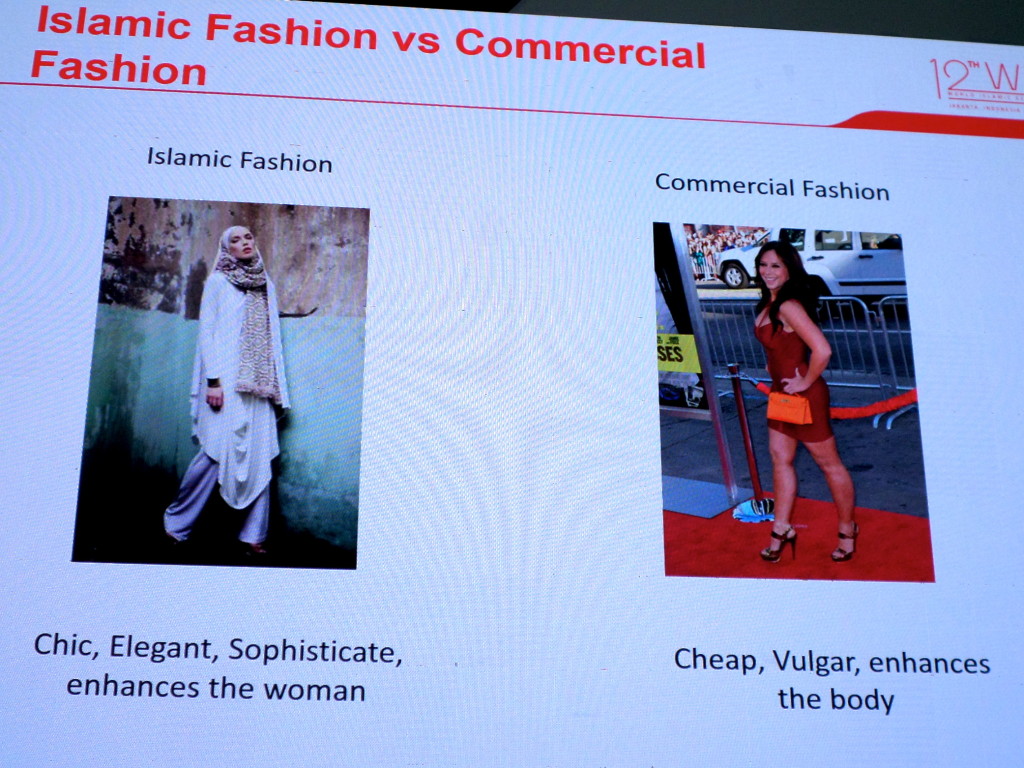 Spot the difference? |
Noting that over 62% of the Islamic world’s population is under 30, Mr. Maulana said he is working with celebrities to influence the young generation, boost the role of Islamic fashion in the Indonesian economy and take it global. “Most of our clientele is wearing modest fashion,” he said, noting that designs have to be contemporary and textiles in line with Indonesian weather conditions. “There is a lot of room to grow especially in the premium fashion sector,” he said.
Mr. Maulana said the “modest fashion” movement began in 2010 and gained momentum via social media. Although popularized by local Indonesian magazines, he felt it still needs more traction in the more popular global magazines. He said the trend is supported by the emergence of a new market known as “the hijaber community.”
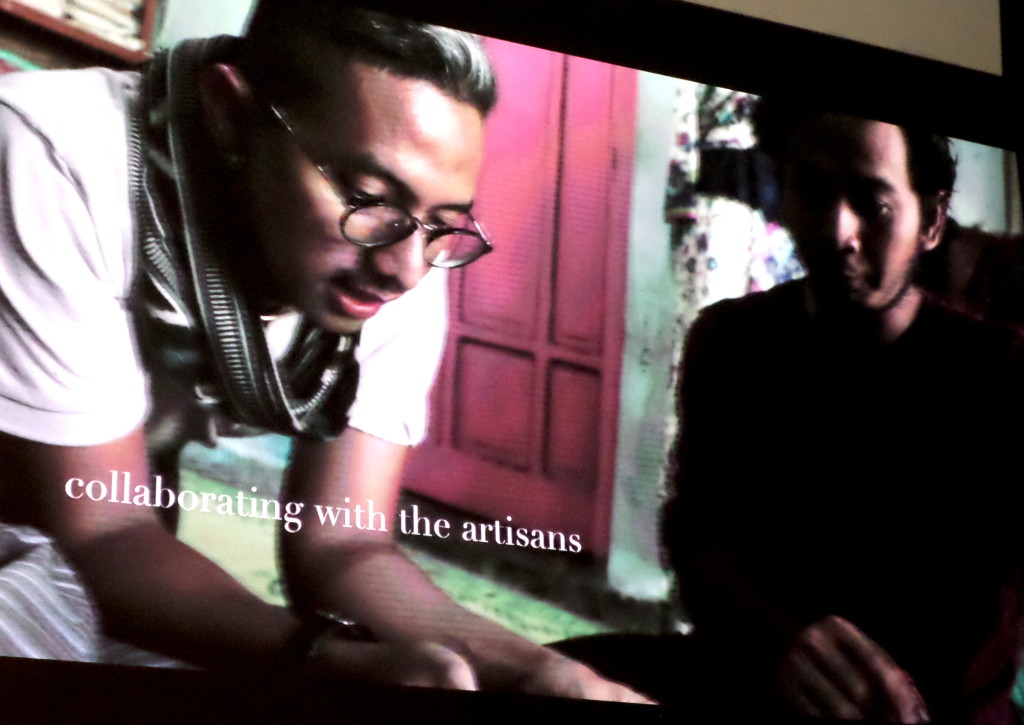 A shot from Mr Maulana’s promotional video. |
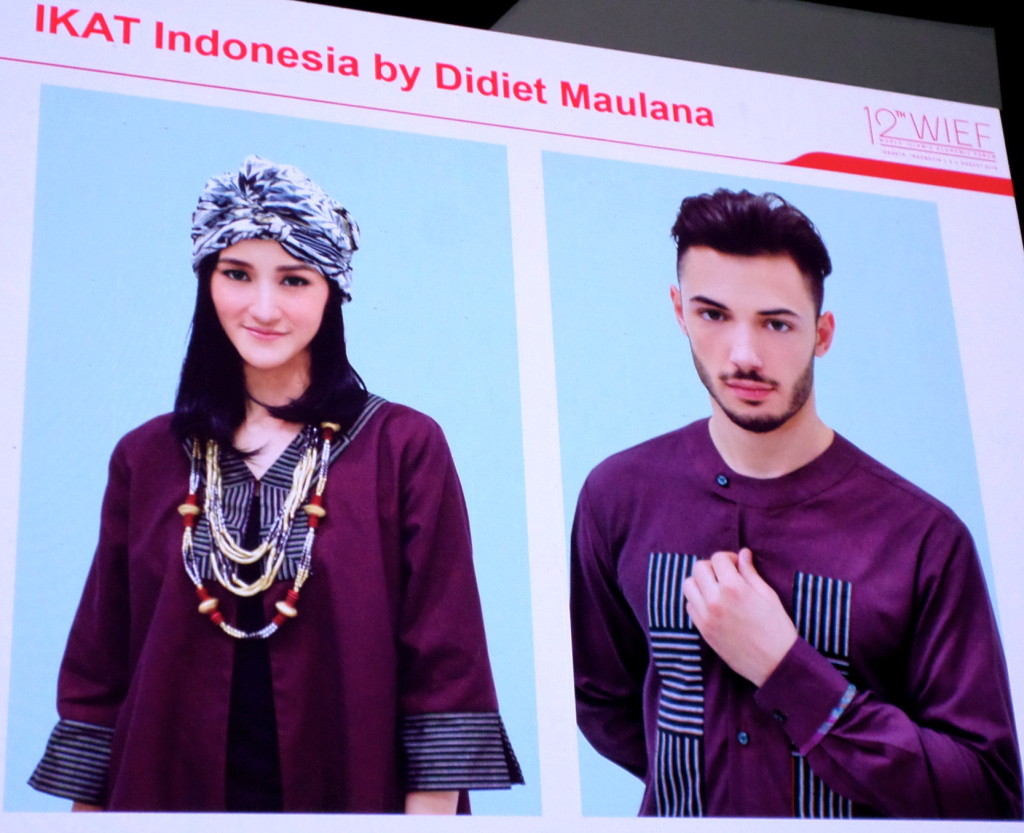 Some of Mr Maulana’s designs. |
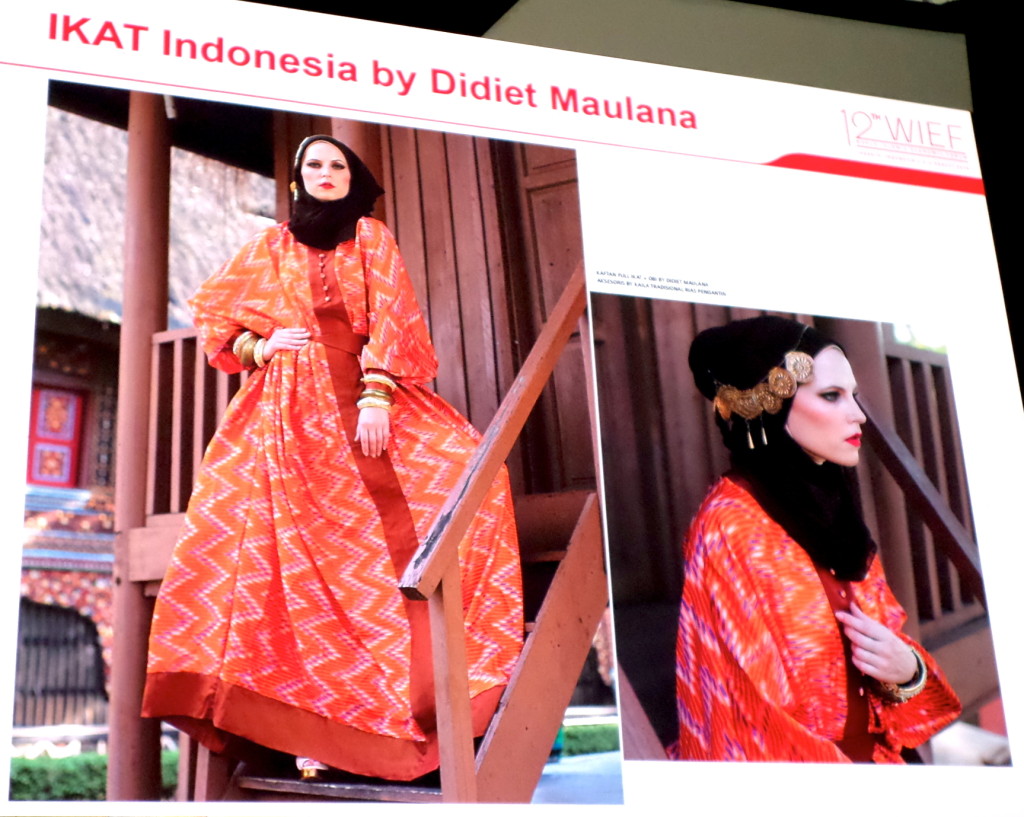 ============= |
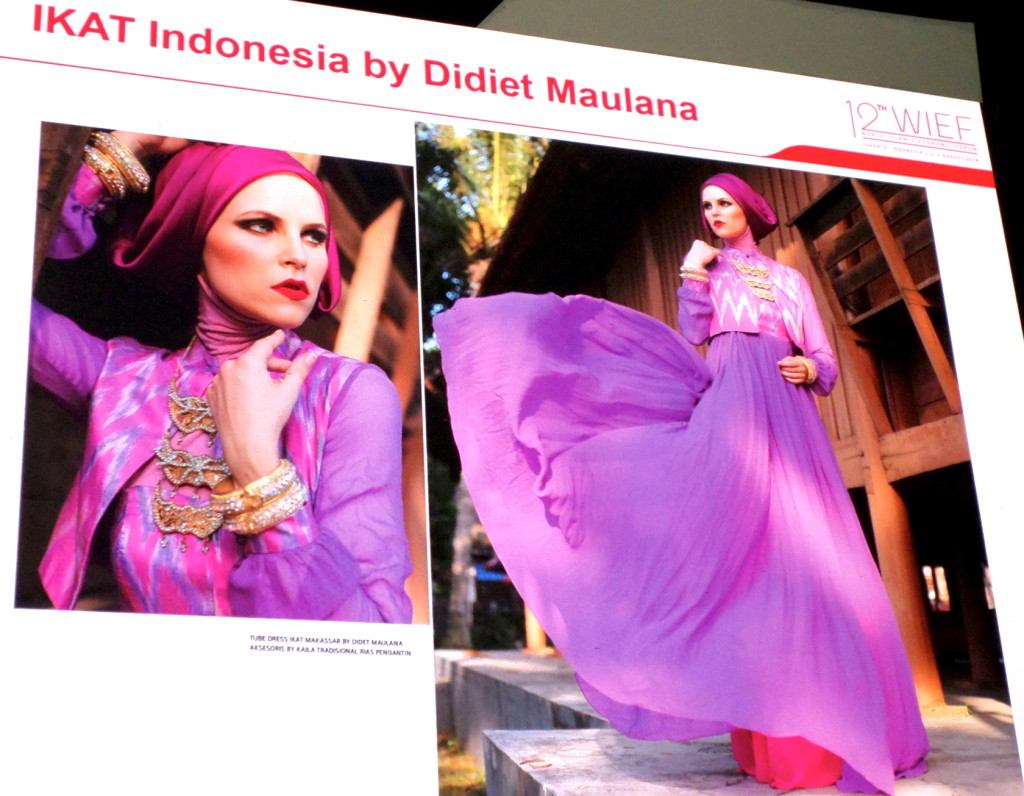 ============= |
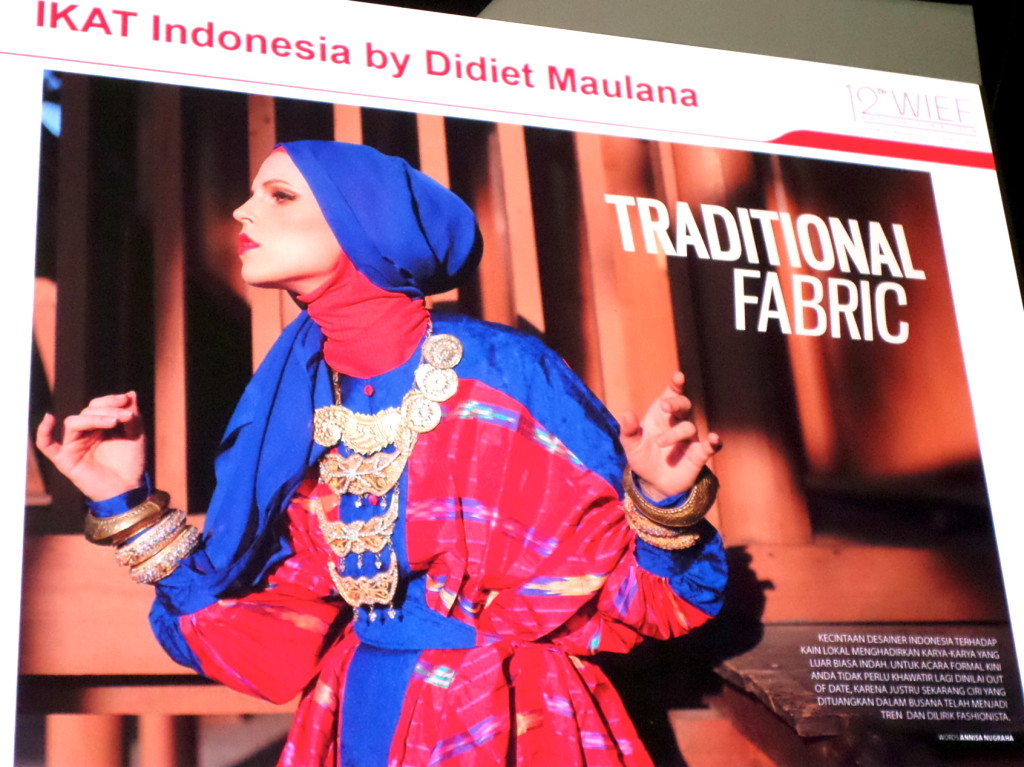 ============= |
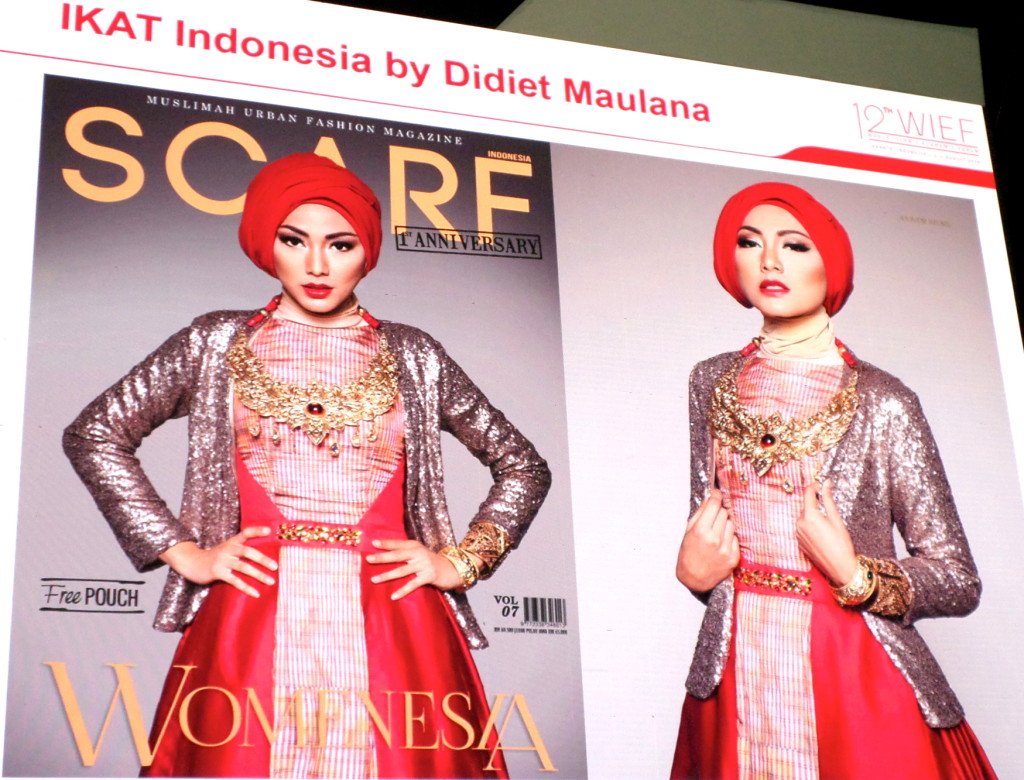 ============= |
He showed a superb promotional video about how he is partnering with SMEs and local weavers in different regions of Indonesia. “The video tells the story of how we create the product, from sourcing the textiles and the weavers to the production stage and the retailers. We have to promote the uniqueness of the design. Modest fashion designers have a colourful range and give uniqueness of each region. Our goal is to penetrate the premium market.”
The Indonesian government backs their efforts with “modest fashion” shows and exhibition and this effort will need to be sustained for Indonesian designers to gain a bigger market in international trade shows, Mr. Maulana said.
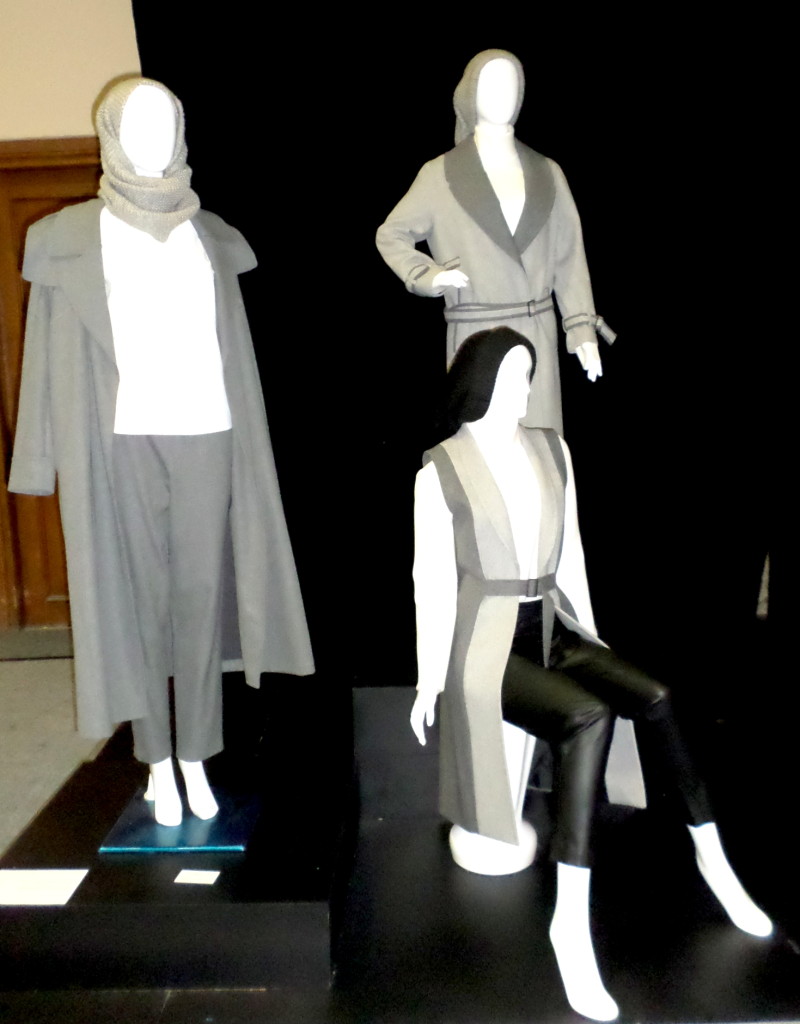 ============= |
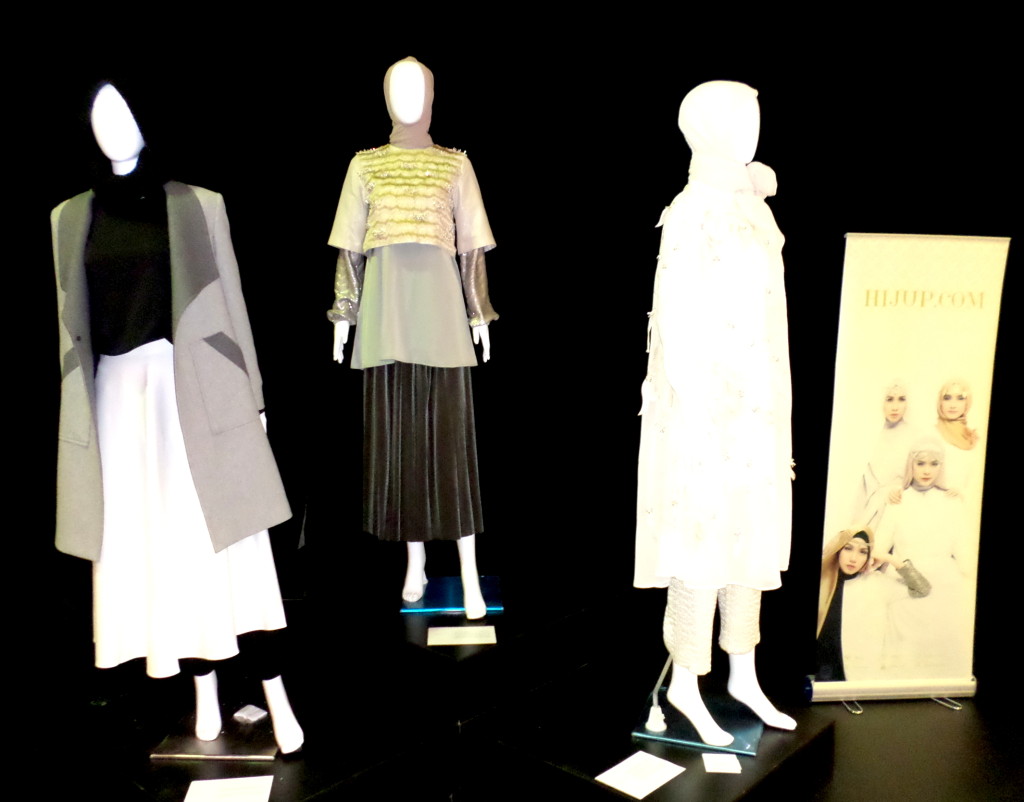 ============= |
Noting that Islamic fashion cuts across all barriers of faith, culture and age, Ms Aden said that Scandinavian retailers have to yet to discover the potential. “The Muslim minority is only a minority so there is no potential. But the designs should appeal to all women. Any brand that communicates this will help retailers take notice.” She said designers and Muslim female entrepreneurs are collaborating and using social media to publicise their work.
Ms Aden said Western brands are awakening to the market potential, especially in the Middle East, and are adapting their patterns and designs. However, she said, “there are Muslims all over world, in Asia, Europe, and U.S. and many other countries.” Even so, going mainstream is not easy. Ms Aden called on investors to support the effort because launching and popularising a fashion brand needs a lot of capital and talent to compete with the established haute couture brands. “Every step of the process costs,” she said.
All panelists agreed that they want investors who can put up the capital, as well as open doors and share knowledge. Ms Nicolini said that at the WIEF she had attended another panel discussion on crowd-funding which could apply to fashion brands as well as to I.T. companies. She called for airport shopping arcades in the Islamic world to give “modest fashion” brands more exposure.
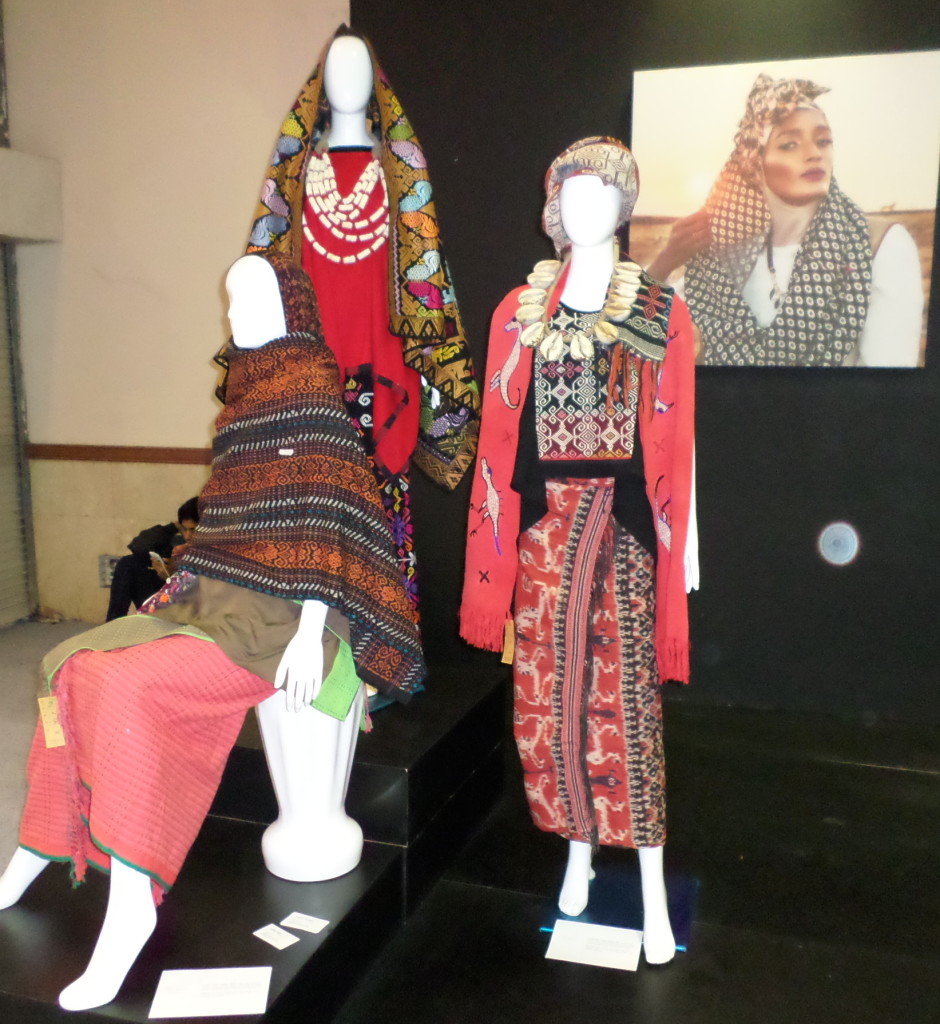 ============= |
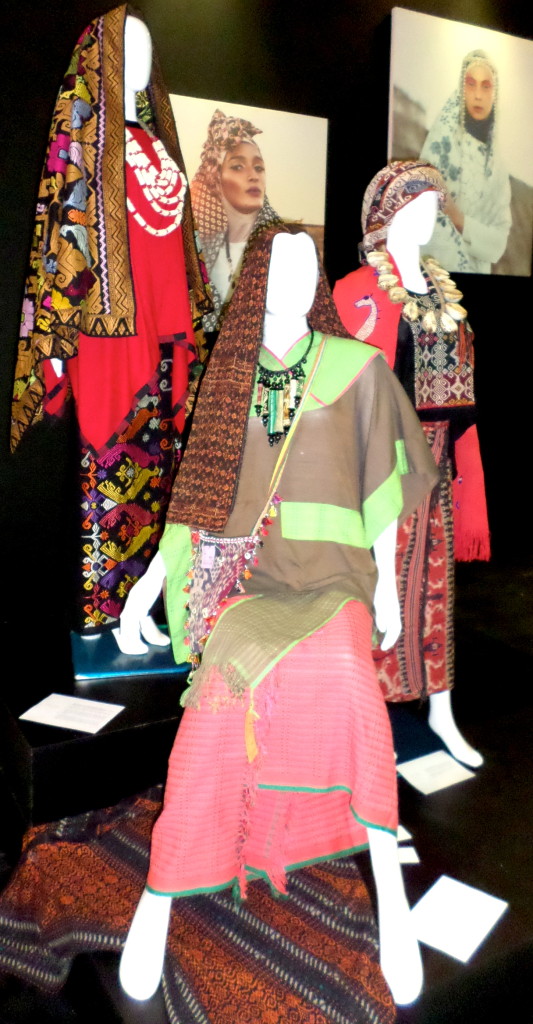 ============= |
One key issue is the branding itself. Ms Aden said high fashion brands will avoid anything to do with Islam. Mr. Maulana also said it was a sensitive issue, but essentially true. To overcome it, he said, designers should use high profile celebrities who wear the hijab to attract more media coverage. This is happening in Indonesia, where many fashion events are held regularly, known variously as a “Modest Fashion Week” as well as “Muslim Fashion Festival.” These events also attract sponsorship support of halal-certified cosmetics companies.
The panel moderator, Ms Isaacs, said it was important to stay the course. “If we are not presenting ourselves and showing what we are capable of, they are going to think of us as dull and boring.” She said she had recently hosted a modest fashion emporium in South Africa. Banks are also funding such efforts and helping the entrepreneurs by offering courses in business management and development.
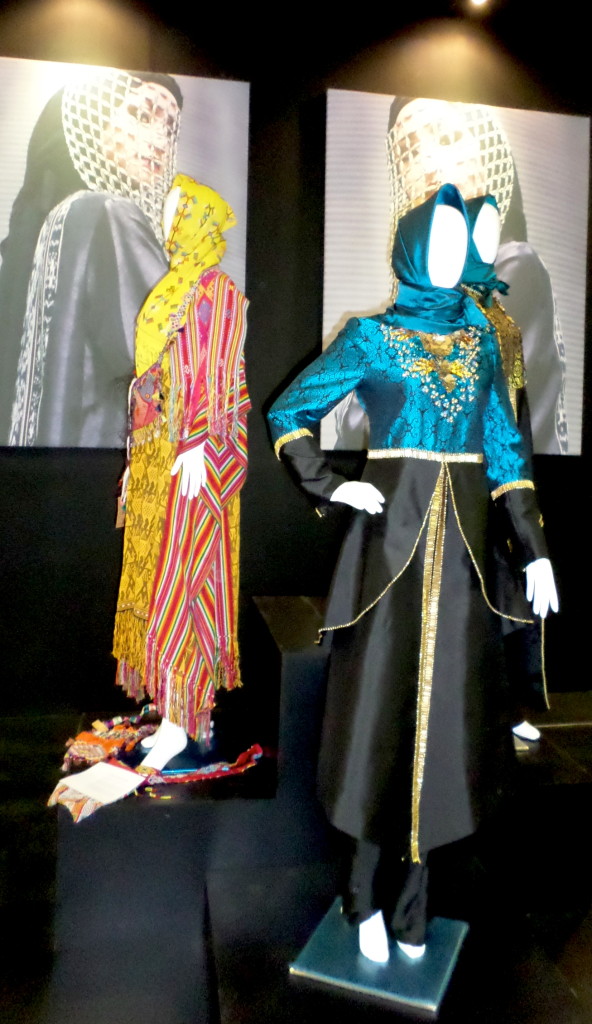 ============= |
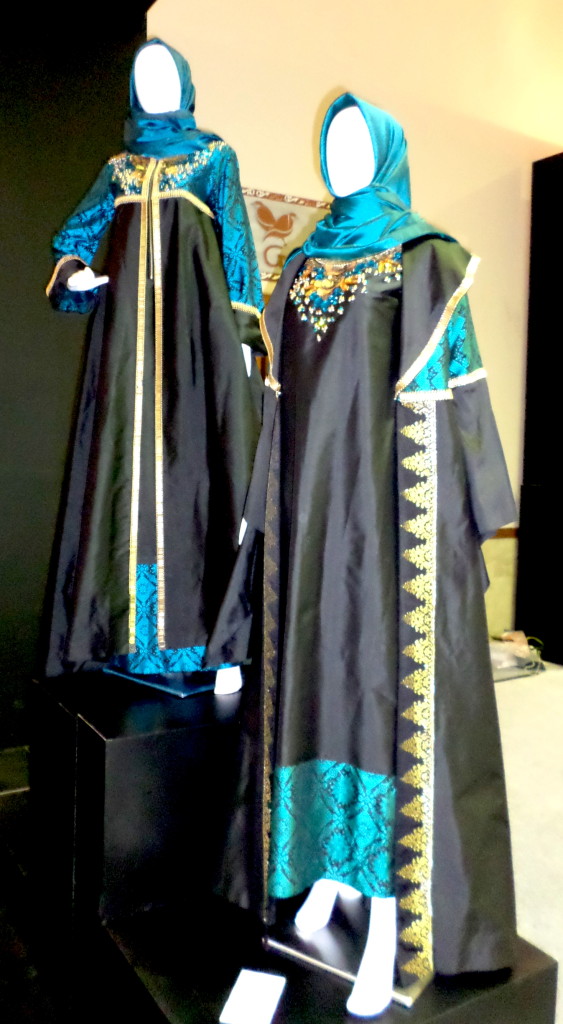 ============= |
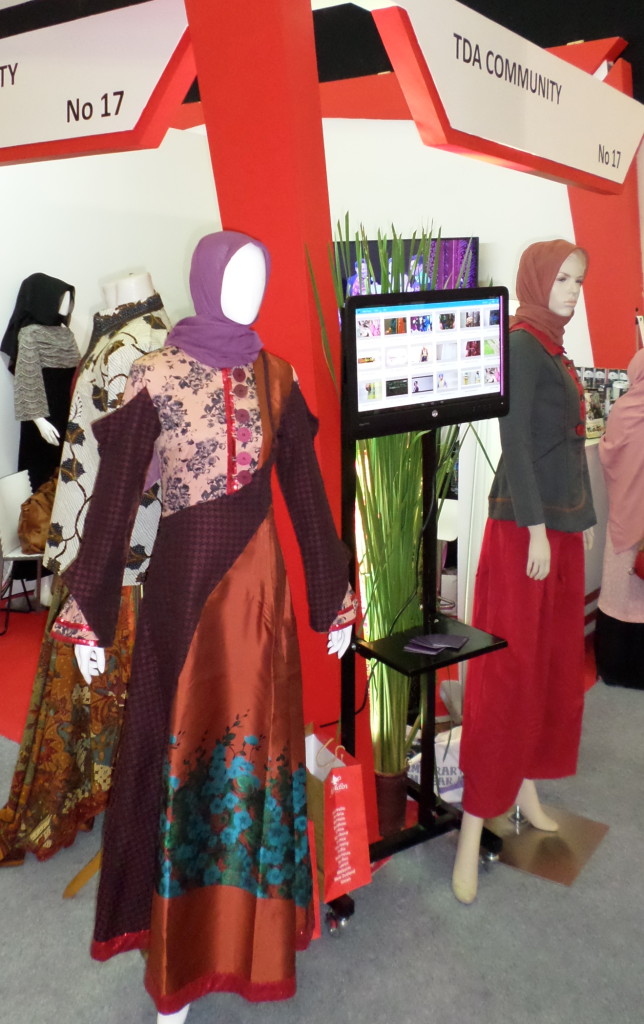 ============= |
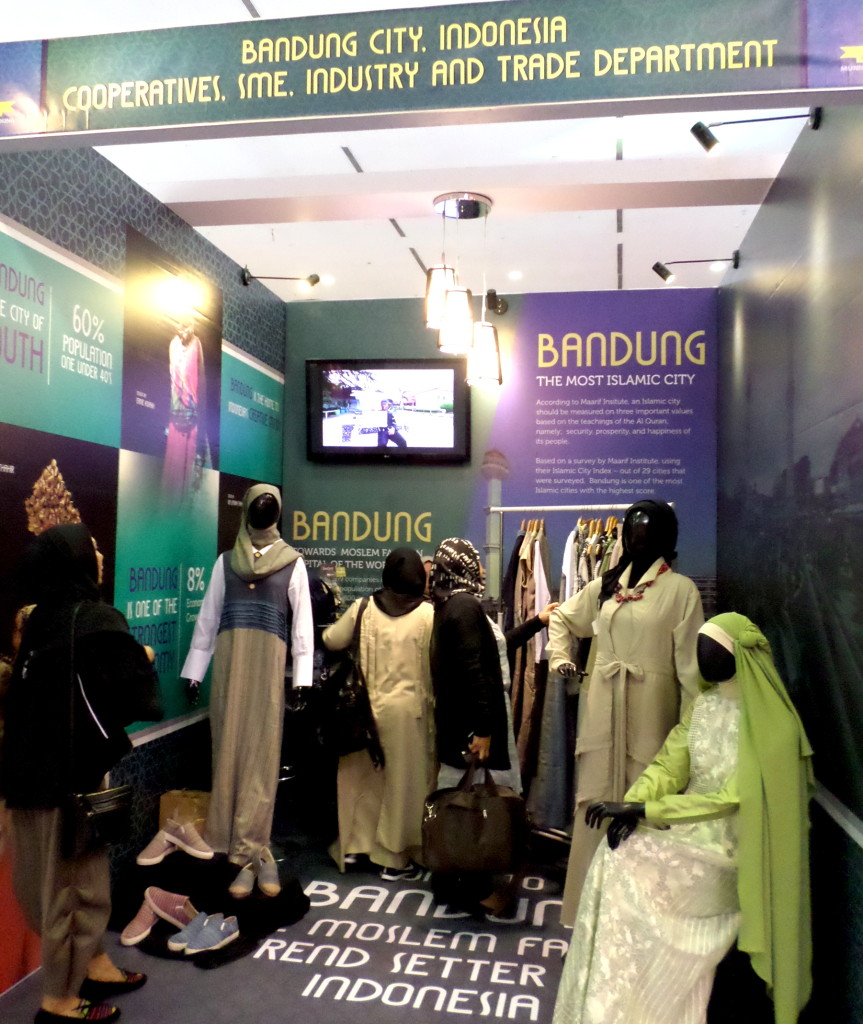 ============= |



Liked this article? Share it!